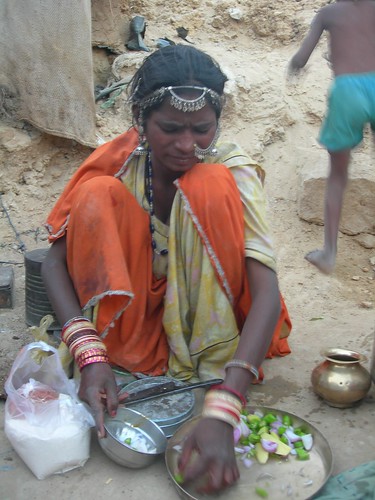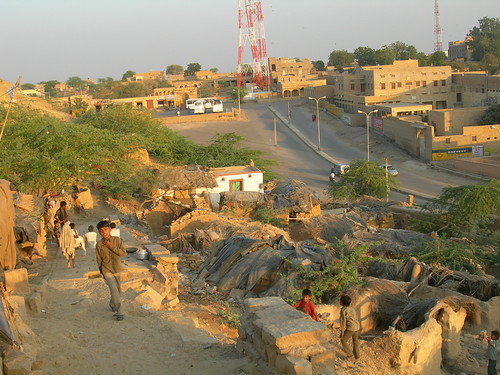We stay in this place now-- Jogi part 3
I have spent weeks in Jaisalmer wondering when I will leave again. Then one day, I begin giving things away. I have a parcel sewn up and take it to the post office. I start looking at my pack lying in the corner of my tiny cell of a room. I wonder what I will tell Fulli. But she knows what is happening, of course. The other day we spoke of Africa. She said she was happy I would be living with other kalliwallis (black women) but that I should really come live with her in her mamma’s village where we could sing and dance and make food together.
I know that my time in Jaisalmer is over. At the end of the day, there are not any nomads here. Everyone has settled at least a decade ago. I cannot chase after ghosts. The interviews with the Jogi community were so helpful because they helped me realize that I need to move on. The memory of movement, its imprint has grown faint with these people. It’s a lifestyle they have rejected and it is clear why. There is no respect for them as Jogis. There is no more life in this wandering. Communities no longer support them and there are jobs now – honest labor, the idea of homes and land allotments and schools for their children (at some point in the future…).
So, bas. No more, says the elderly Jogi in his saffron shirt and clean white dhoti. If this ancient wandering – this restless begging was a curse from Goraknath, the casting out of Kandipath, who through his greed and deceit rendered generations of Jogis unclean – if begging is truly a daily death, then perhaps the curse has run its course and the Kalbelias and Jogis are ready to live a new life, to be reborn in a new status, to raise children with a new idea of home, to write a new story.
Homes made of mud and thatch and stones will replace beds of sand and stars. These new houses, these pucca ghar will pull these travellers away from an endless trail of footsteps, a winding road through the desert that has lead to water and grain, to a hundred faces, a hundred bowls. Dust storms already begin to erase these roads, paved with repetition, these roads that render a history and a movement visible.
The Jogis of Jaisalmer are still landless. They have no papers and for this reason are in constant fear of another eviction even though they have been living in this spot of eight or nine years. There is no school, no clinic, no market, no stability for their children. Still, they cannot settle in town. There is no place for them in Kalakar Colony. Still they find their “lonely place”. Everyday they walk the few kilometers into town or to the mines. Before we leave, Gael asks one man a question. After this long conversation about wandering and hardship and uncertainty, Gael asks, In two years time, where will you be?
Right here, Tota Ram Nath says and strikes the ground between us with his large and worn metal tipped walking stick. We stay in this place now.
I leave Jaisalmer less certain of things than when I arrived. I can still feel Fulli's kisses on my cheeks. Suman wouldn't speak to me at all on my last day. I am headed to Pali and can't say when I will be back. But still we don't say goodbye, we don't have words for that, only phir melange, we will meet again.


1 Comments:
Nice idea with this site its better than most of the rubbish I come across.
»
Post a Comment
<< Home